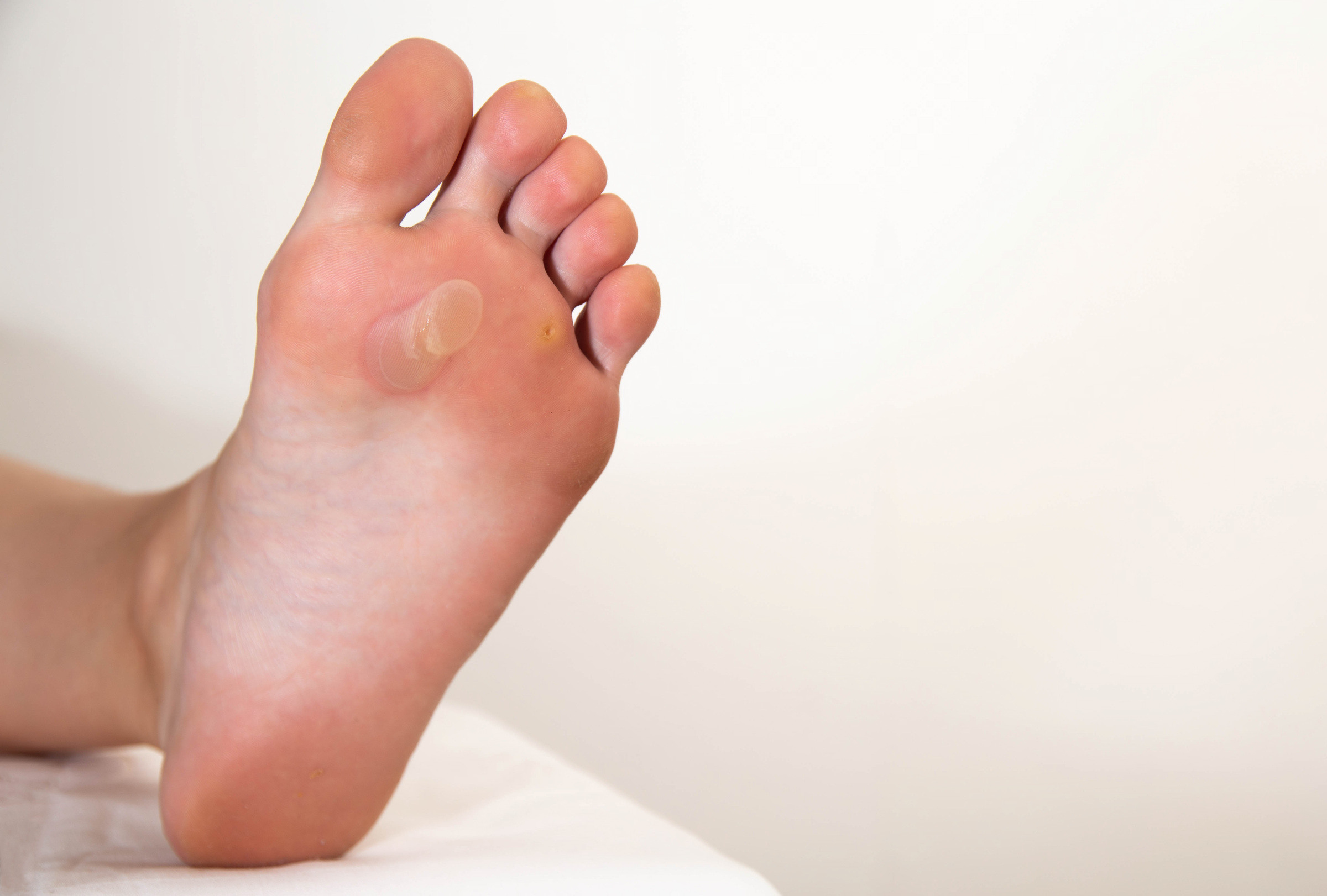Answer:
Both genital warts and foot warts are caused by the human papillomavirus (HPV). However, genital warts are mainly caused by HPV types 6 and 11, while foot warts are typically caused by types 1 and 2.
Genital warts usually appear on the genitals, but they can also affect the mucous membranes of the mouth and throat through unsafe sexual practices. Touching the affected skin and then touching the eyes, nose, or mouth can also spread the virus.
Foot warts commonly grow on the soles and heels. There are two main types: those caused by HPV type 1 appear as smooth, dome-shaped lesions with brown or black dots (ruptured capillaries), often causing pain when walking or standing. HPV type 2 causes mosaic-type warts.
HPV thrives in warm, moist environments like communal areas near swimming pools, increasing the risk of infection through open wounds. Scratching warts can spread them to fingernails or other areas.
 |
Blisters and warts on the sole of the foot due to HPV infection can cause pain when walking or standing. Illustrative photo: Vecteezy |
Blisters and warts on the sole of the foot due to HPV infection can cause pain when walking or standing. Illustrative photo: Vecteezy
Those at higher risk for foot warts include children with underdeveloped immune systems, people with weakened immunity or skin inflammation, and those who walk barefoot in public areas like pools or showers.
While not considered a high-risk condition, warts can be unsightly, costly to treat, time-consuming, and emotionally distressing. There are over 200 types of HPV. The US Centers for Disease Control and Prevention (CDC) states that nearly everyone will get an HPV infection at some point in their lives. Around 40 types are sexually transmitted, with 13-15 high-risk types linked to cancer. Preventive measures are strongly recommended.
The Gardasil 9 vaccine protects against 9 common HPV types: 6, 11, 16, 18, 31, 33, 45, 52, and 58. These types cause genital warts and cancers like cervical, vulvar, vaginal, throat, and anal cancer. The vaccine is recommended for both males and females aged 9 to 45. The vaccination schedule consists of three doses, offering over 90% effectiveness.
Maintaining a healthy lifestyle with regular sleep, a balanced diet, avoiding sharing personal items, not walking barefoot in public, regular exercise, and stress management are also crucial.
Doctor Bui Cong Su
Medical Manager, VNVC Vaccination System
Readers can submit vaccine-related questions for doctors to answer here.












